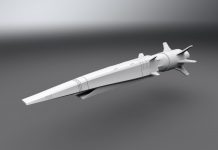
In a move underscoring Europe’s shifting defense posture, French military vehicle manufacturer Arquus and Germany’s Daimler Truck have formalized a strategic alliance aimed at reinforcing the logistical backbone of the French Armed Forces.
Announced last Thursday, the partnership is designed to leverage both firms’ industrial strengths in the co-development, production, and sustainment of next-generation military transport vehicles. Central to this initiative is the modernization of the French Army’s logistics truck fleet—a critical enabler for sustained operations across multiple theaters.
This Franco-German collaboration emerges amid a broader trend of heightened defense investment across Europe, driven by renewed geopolitical instability and a strategic push for defense-industrial sovereignty. The joint communiqué highlights both firms’ European production footprint—Arquus operates exclusively within France, while Daimler Truck maintains significant manufacturing capacity near the French-German border.
Arquus, responsible for the vast majority of the French Army’s wheeled vehicle inventory and now operating under the John Cockerill group, contributes deep expertise in armored mobility and systems integration. Daimler Truck, a global leader in commercial vehicle manufacturing, brings unmatched production scale and cross-border industrial logistics, positioning the alliance to meet surge demands and long-term sustainment needs.
Senior officials from both firms pointed to strong platform compatibility and operational synergy—an important consideration amid Europe’s fragmented military vehicle ecosystem. “Our objective is to enhance the operational readiness of both nations,” stated Daniel Zittel, Daimler Truck’s head of defense sales.
Manufacturing responsibilities will be shared across multiple strategic sites: Arquus will utilize its facilities in Garchizy and Limoges, while Daimler Truck will operate out of Wörth am Rhein and Molsheim—key locations that reinforce regional defense-industrial capacity. Beyond capability development, the initiative is also framed as a vehicle for preserving high-skilled employment and shoring up critical supply chains in both countries.
As European nations accelerate rearmament programs, partnerships like this one signal a recalibration of industrial strategy—revitalizing legacy production lines and aligning them more closely with evolving operational requirements.




